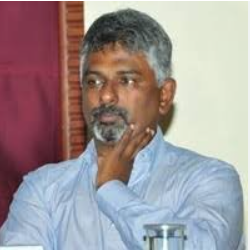
Dear Visitor,
Welcome to ShankarJagansWorld. Thanks for your time. Here you will see my writings- of blogs, articles, reflections, book reviews and my published books. Trust that you find it useful.
Please share your thoughts in the comments section as you browse my site. Your every word means a lot to me.
Thank you,
Shankar Jaganathan
“Comparisions is hell, Contentment is heaven”
Latest Post
- Book Review 2025.10: Coaching and Mentoring, What they are and how to make the most of them (2010), Paperback 214 pages, June 6, 2025Book Review 2025.10: Coaching and Mentoring, What they are and how to make the most of them (2010), Paperback 214 pages, June 6, 2025 Picked it up being the first book on Coaching and Mentoring that I came across in recent times. Having been identified to coach /mentor, I felt the need to learn more about these concepts. Despite the fact that I was familiar with these concepts for most of my life, I had no occasion to critically examine it which I thought is essential for any practioner. While this book did not meet my specific needs, it did make me introspect and reflect on may aspects of coaching and mentoring that hopefully will make me better at these opportunities. The author delves into the origin of coaching and mentoring and the key ideas that have shaped the development of these two concepts providing a good base to start. Rest of the book is divided between the development of professional bodies formed to govern these professions in the USA and Europe and different elements of coaching. Picking the right coach, coaching and mentoring women, coaching and mentoring for leadership, the role played by the companies which use coaching and […]
- Book Review 2025.09: Predictably Irrational (2009), Paperback 244 pages, May 27, 2025Book Review 2025.09: Predictably Irrational (2009), Paperback 244 pages, May 27, 2025 I like behavioural economics for it negates the concept of “no free lunch” espoused by the traditional economics. Not only it negates, it also identifies multiple points where “free lunches” are served. Aptly titled “Predictably Irrational -The Hidden Forces that Shape Our Decisions”, this book identifies situations where we behave irrationally, but predictably enough to create free lunches opportunities. The author identifies twelve situations where this predictably irrational behaviour arises, each organized in a separate chapter. The organisation of these chapters follows a similar structure of outlining of the “free lunch idea” by sharing an example of its practice, explanation of the situations where it works and where it may not work, description of experiments to validate these ideas and finally elaborating further areas where this idea could find application. The initial five chapters covering the role comparison plays in decision making, the impact of anchor price in buying decisions, the lure of zero cost or “free” offers, how social norms and market norms conflict and the influence of arousal in decision making are easy to appreciate and can be validated using our own daily experiences. However, the […]
- Book Review 2025.08: Don’t Believe Everything You Think (2022), Paperback 167 pages, May 15, 2025Book Review 2025.08: Don’t Believe Everything You Think (2022), Paperback 167 pages, May 15, 2025 Attracted by the intriguing title, I picked up this book at Bangaluru Airport last week and completed it in five sittings. Written in a simple language, the author presents his crisp core message that is repeated multiple times with an incremental level of detail added with each repetition. These repetitions are targeted at getting the reader to imbibe the simple message which could take considerable effort to practice and make it a part of their daily routine. Differentiation of thinking from thought is the core concept in this book. Thinking is defined an active task that emerged during the evolution to ensure the safety and survival of the individual in difficult environments. In contrast, thought is defined as that which emerges without effort in the tranquil mind and forms the basis for elevating and inspirational ideas leading to fulfilment. Further, the author asserts that both thinking and thought cannot coexist in the same mind at the same time as they are conflicting in almost all dimensions. Suffering is seen as a product of thinking and forms the first part of the message. While pain […]

Social Profiles